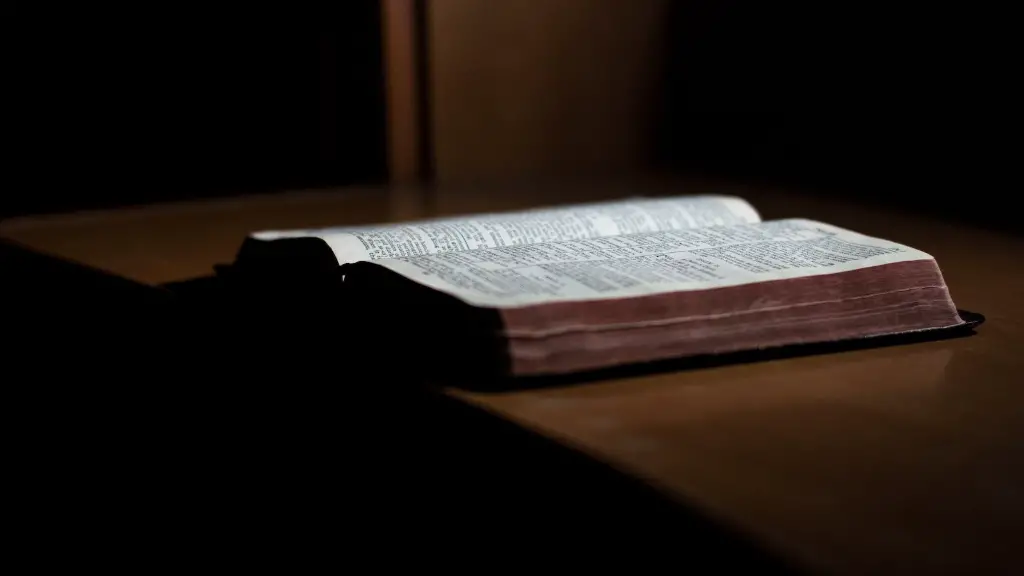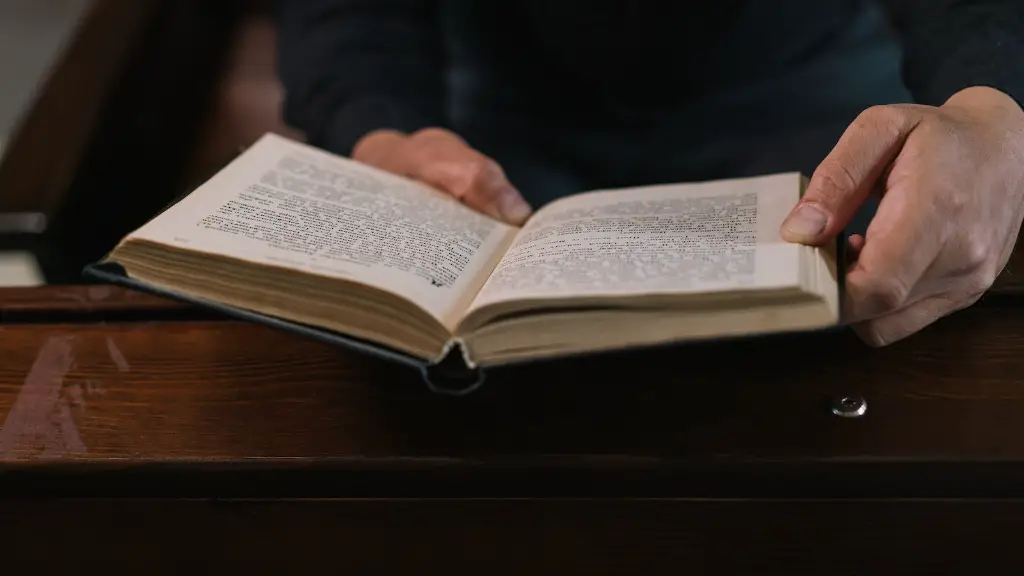Cremation has been practiced for millennia for a variety of religious and cultural reasons. In more recent times, the technology has become more accessible and cheaper than alternatives such as burials. This has caused many to question if cremation is permitted or even allowed by Christianity, in particular the Bible.
The Bible is silent on the physical method of disposing of the dead in both the Old Testament and the New Testament. It does, however, mention the physical treatment of the dead such as burial or burning of corpses. In Genesis 35:2, Jacob tells his family to “bury the foreign gods”, giving an example of the act of burial. In 2 Samuel 21:12-14, it is noted that the Gibeonites burned their slain enemies in addition to hanging them publicly. While the early Hebrews often resorted to cremation, in more modern times it has been rejected as a practice that disrespects the dead and prevents a physical grave from being visited by loved ones.
Most begin to accept that the bible does not expressly forbid cremation, but that it is not preferred. This opinion is shared by a vast majority of modern religious scholars and organisations, who believe the bible demonstrates a general opposition to cremation. The Roman Catholic Church, for example, has recently declared cremation to be permissible and tolerable but has stressed that the individual must still be buried in a respectful and proper manner.
When debating whether cremation is against the bible, it is important to ask why cremation became unpopular and why it has remained so until recently. To begin to answer these questions, we must understand the motive behind the act. Historically, the purpose of a burial was to allow the deceased’s body to return to the ground and give them dignity in death. Cremation, on the other hand, was seen to be a quick and impersonal way of coping with a body, which lacked respect and dishonoured the soul.
Digging deeper, cremation was seen to have spiritual implications according to religious scholars. The bible states that our bodies are the temples of the Holy Spirit, and thus should be respected after death. To this end, throwing a body into a fire was seen as a dire act that disregarded the link between the body and the soul.
In fact, some religious scholars assert that fire was a symbol of judgement in the bible; when the wicked were killed, their bodies were thrown into a fiery pyre. It is not difficult to see why ancient religions would regard cremation with skepticism and see it as a punishment.
It is also worth mentioning that although not expressly forbidden, the bible still mentions several reasons as to why one should not cremate a body. For example, it mentions that it would prevent loved ones from visiting the grave, which was common practice for many cultures in ancient times. This symbolizes the disconnection between the physical body and the spiritual soul, and ensures that the spirit of the deceased can never return in the same way to the living.
The Arguments Pro Cremation
Despite the arguments against cremation, not everyone sees it to be in contravention of the bible. There is a small but battle-hardened minority of religious scholars who argue the opposite and contend that cremation can be a dignifying, noble and respectful act.
Those who subscribe to this point of view argue that it is the motivation behind the act that must be considered, rather than the action itself. It is not unethical, they argue, to cremate a body as long as it is done respectfully and with honour. They point out that certain passages of scripture affirm the principle of cremation, such as Jacob burning the idols in Genesis 35:2.
Death, some suggest, is an intimate process that should be handled carefully and cremation can be an important part of a residential ritual. Its practical advantages should also be considered: It can save money, help the environment and minimize the impact on precious land. It also offers a practical disposal option for isolated geographical locations and medical emergencies.
Is Cremation for Everyone?
The question of whether cremation is in contravention of the bible is ultimately a personal matter. Since the bible does not expressly forbid it, some may view it as an acceptable form of disposing the dead. Yet others may find the concept to be offensive and disrespectful. It is important, therefore, to think carefully before deciding whether cremation is right for you or your loved ones.
Ultimately, however, one should follow their faith and adhere to their community’s religious rituals, while also taking into account practical considerations such as cost, location and emotional considerations. Above all, respect must be shown to the deceased and their wishes, as well as to their families. Cremation may be an option for some, and there are biblical arguments for and against it.
Stated Religious Positions on Cremation
Today, many of the world’s religious organisations have taken a stance on cremation. The position of these organisations range from total opposition to total acceptance, with some organisations allowing for it only in extenuating circumstances.
For example, the Protestant Church generally permits cremation, though it has no set guidelines regarding its use. Most of its adherents view cremation as an acceptable option when a burial is not practical or feasible. The Church of Jesus Christ of Latter-Day Saints permits cremation, though only if it is conducted immediately after death.
The Roman Catholic Church, however, follows a stricter line and forbids cremation due to its long-standing traditions and beliefs. Cremation is sometimes allowed in special cases, such as when a doubt exists on whether the man or woman was baptised or when a body would be inaccessible or subject to destruction due to war or natural disasters.
Meanwhile, Islamic and Jewish Law both forbid cremation due to the respect that must be shown to cadavers.
The Economic Impact of Cremation
Cost is often the reason given for why individuals and families make the switch from burials to cremation. Cremation remains much cheaper than burials for many people, particularly in urban settings where land and space are at a premium.
The economic impact of cremation on the wider economy is relatively small, though there has been some debate about how it might affect funeral homes and other associated services. The vast majority of funeral homes offer both burial and cremation services, and cremations are becoming an increasingly popular option, accounting for nearly half of deaths in 2020 in the United States alone.
There is also some speculation that high-end cremation services might cause overall prices to rise due to their increasing popularity, though most will agree that they will remain significantly cheaper than traditional full-funeral burials. For many families, cremations offer an affordable and economical option to honour their deceased loved ones.
The Environmental Impact of Cremation
The other major factor in the debate over cremation is its environmental impact. At crowded cemeteries, it can take up valuable land, energy, and resources for burials. Cremation, by comparison, requires no resources other than the fuel used to cremate a body. It thus has the potential to save a large amount of energy considering the number of bodies cremated per year.
However, there are some downsides to cremation. Cremations can result in the release of dioxins and mercury into the environment that can be dangerous to health and wildlife. Due to this, an increasing number of crematoriums are investing in air purification systems to capture and contain any hazardous emissions.
When deciding on cremation as an option, it is important to consider the environmental impact, particularly in areas where cemeteries may be overloaded or space is running out. Ultimately, though, the environmental impacts of cremation are significantly lesser than those of burials and could be viewed as a greener, more sustainable option.
Conclusion
The bible does not explicitly forbid cremation, and religious organisations and scholars take differing positions on the topic. Ultimately, it is an individual’s decision whether or not to pursue cremation, and there are strong biblical arguments for and against it. Cost and the preservation of the environment could also be taken into consideration when making a decision. Whether cremation is against the bible is a personal decision, and one has to weigh up the pros and cons carefully.




